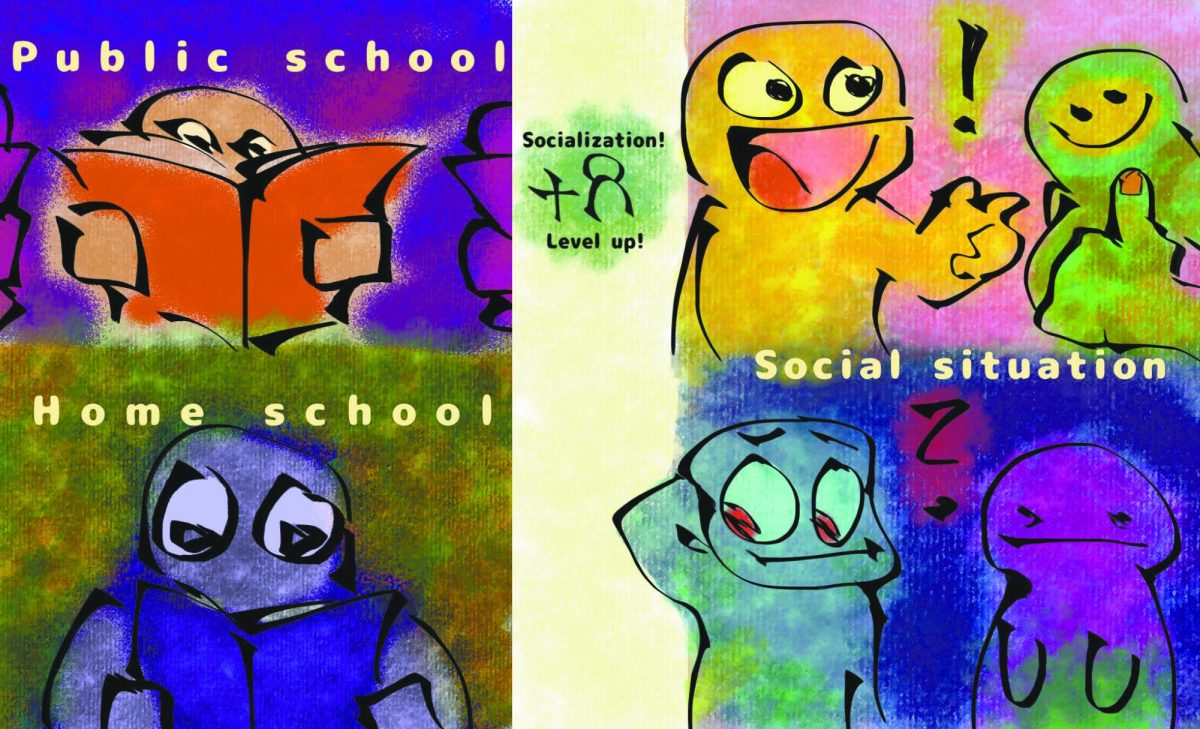Making your bed in the morning, listening to music, going out, and even taking prescribed medication are all ways to help cure or reduce depression. But did you know that adding a little bit of gratitude into your day can serve as a natural remedy?
Day to day, as a Bellevue East student complaints are heard throughout the school. The words of wishing that their life was better, persistently wanting more. No good comes out of looking for the negatives. It is always said that someone has it worse, but it’s true.
People may envy what you have, but that’s only their perspective. It goes both ways. People should be more appreciative for what they are given. Gratitude comes with numerous benefits for the mind and the body.
It is known that sports and other physical activity help give dopamine and serotonin to the brain to boost happiness, but gratitude is proven to have the same affect. According to “The Benefits of Slumber,” by NIH News in Health, “Sleep helps you think more clearly, have quicker reflexes and focus better.”
“The fact is, when we look at well-rested people, they’re operating at a different level than people trying to get by on 1 or 2 hours less nightly sleep,” Dr. Merrill Mitler, a sleep expert and neuroscientist at NIH said.
With less stress, less worried thoughts, less horrid interactions, and less aggravation a good night’s sleep can lead to the next day filled with jubilation. Feeling grateful can improve not only your sleep schedule, but also come with numerous health benefits.
According to the article “Science finds that gratitude is good for your health,” by Dunn L, “Gratitude works because, as a way of perceiving and interpreting life, it recruits other positive emotions that have direct physical benefits, most likely through the immune system or endocrine system.”
Negative emotions impact the body’s healing process. When feeling upset or anxious, the body’s muscles can tighten, later leading to soreness and pain. Therefore, focusing on the positive aspects of life can reduce aches and help heal you faster.
Mental blocks take a toll on most every day. It is easy to become frustrated when an unexpected occurrence takes place in your life. The brain is wired to problem-solve, that’s why accepting and appreciating is so hard for the average person who doesn’t practice gratitude.
According to an article titled, “The Facts of Gratitude: The Numerous Physical and Mental Health Benefits of Gratitude Practice,” by CLE | Choose Your Future, College Living Experience, “Gratitude reduces a multitude of toxic emotions, ranging from envy and resentment to frustration and regret,” Robert A. Emmons, Ph.D., a leading gratitude researcher said. He has conducted multiple studies on the link between gratitude and well-being. His research confirms that gratitude effectively increases happiness and reduces depression.
It can be hard to see the bright side of situations, but building a repetitive routine of positive thinking, like most other things you practice, will become easier with time.
There are many ways to add gratitude to your day. A little can go a long way. There is always room to fit in positive affirmations throughout the day. They may seem silly at first but you will soon realize that they will have a major positive impact on your mood. This can be by giving compliments to yourself and others or phrasing encouraging messages.
Meditation is also a practice that can improve your mentality. Taking that calm break to go over the things that make you mad or upset you and accepting letting them go can encourage tremendous breakthroughs.
Journaling can help you reflect on your actions and how they impact others. This would help with some of the overwhelming feelings that come with challenging situations.
In conclusion, the small actions that you may have overlooked because you thought they wouldn’t improve your mood, studies show that they have numerous benefits, it’s just up to you to apply them. Adding thankfulness into your day doesn’t only benefit you, but each person you interact with. You are seen as more likable and feel better about yourself. Being able to find the good in each situation can help you mentally and physically grow as a person. People try to should be a lot more grateful for what they have.




